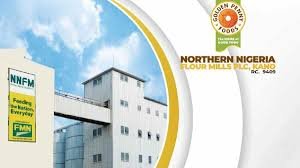Northern Nigeria Flour Mills Plc (NNFM), a subsidiary of Golden Penny Foods Ltd, posted a 36% revenue growth in its latest full-year results, rising from ₦25.95 billion in FY2024 to ₦35.39 billion in FY2025. Profit before tax also rose to ₦2.89 billion, up from ₦2.31 billion in the previous year, while net profit came in at ₦1.75 billion.
However, despite the improved earnings, the company’s operations saw a sharp reversal in cash flow, posting a negative ₦1.98 billion in net cash from operating activities. This stands in contrast to the positive ₦1.66 billion recorded a year earlier and raises serious concerns about liquidity and the sustainability of earnings.
A major driver of this negative cash flow was a ₦14.2 billion increase in inventory, which surged to ₦20.46 billion from ₦6.26 billion. This 226% jump in stock levels far outpaced the increase in sales, prompting questions about inventory management, sales forecasting, or potential market saturation.
Additionally, trade and other payables ballooned by ₦11.37 billion to ₦18.12 billion, suggesting a growing dependence on supplier credit. While this may have helped delay cash outflows, it also points to mounting obligations that could put pressure on short-term liquidity if revenue growth falters.
Capex remained negligible at just ₦1.58 million, compared to ₦199 million in the prior year. With ₦271 million in depreciation recorded during the year, the near absence of capital expenditure could suggest underinvestment in productive assets — a development that might affect future output capacity or operational efficiency.
Despite these challenges, the company declared a combined dividend of ₦0.75 per share (₦0.50 interim and ₦0.25 final), representing a total payout of ₦133.65 million — just 7.6% of net earnings. The low payout ratio indicates a preference for retaining earnings, possibly to strengthen working capital or prepare for future investments.
NNFM’s ownership remains tightly held, with Golden Penny Foods (formerly Flour Mills of Nigeria Plc) controlling 59.6% of the company. Another institutional investor holds 7.27%, leaving relatively limited liquidity for retail investors.
Other concerns include the company’s effective tax rate of 39.6% — well above Nigeria’s statutory 30% — and a reversal in other comprehensive income, which turned negative due to remeasurement losses on defined benefit liabilities.
While the top-line performance is encouraging, NNFM’s FY2025 results present a mixed picture overall. The company’s ability to convert accounting profit into cash, manage mounting obligations, and reinvest for future growth will be key factors for investors monitoring its next moves.

